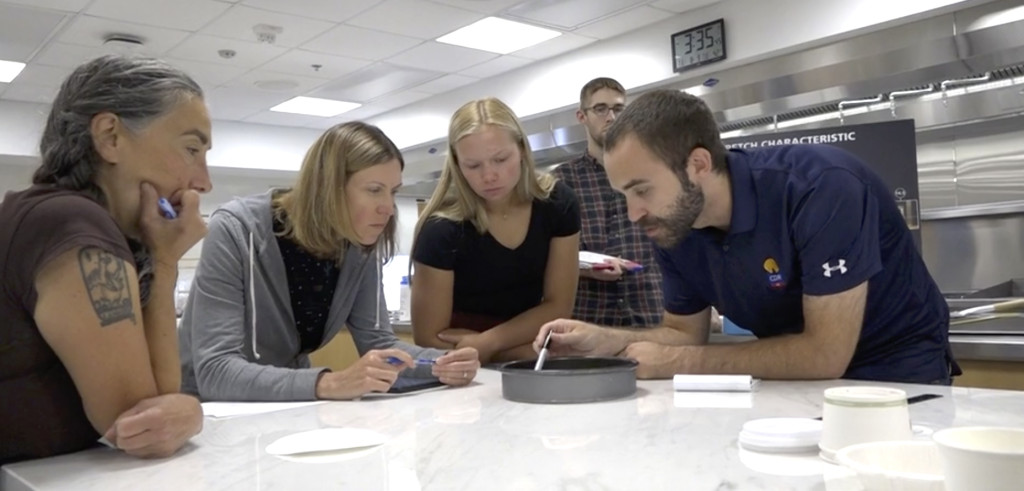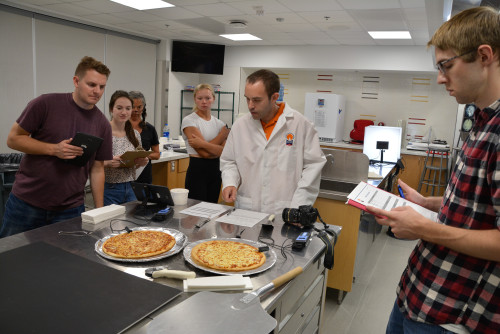Wanted: Pizza and ice cream tasters

Brandon Prochaska (right), sensory coordinator at the Center for Dairy Research, and panelists evaluate the stringiness levels of string cheese samples. University of Wisconsin–Madison
The University of Wisconsin’s Center for Dairy Research went viral last spring when it posted an ad for “descriptive sensory panelists” — in other words, people who taste cheese, pizza and other dairy products. Fascinated by a position that screamed “only in the Dairy State,” CNN, NBC and other media outlets published articles oozing with cheesy puns. Sample headline: “Grate Job!”
While national reporters believed this was all very silly (or “Brie-lieved,” as they inevitably put it), descriptive sensory panelists play an essential role in a research operation that benefits both consumers and the dairy industry. They help improve quality and develop new products. You can thank them the next time you bite into a perfect cheese curd.
“When you buy curds from the grocery store, they’re often mushy and not very pleasant,” says sensory coordinator Brandon Prochaska. “We’re doing research into how to prolong the squeak.”

Brandon Prochaska (center) and members of the descriptive panel — Kristin Panzica (third from left), Jason Pronschinske (right), Philip Eberly (left), and Anastasia Tackett (second from left) — evaluate pizzas for levels of blister formation and browning as they first exit the oven.
The Center for Dairy Research normally gets about 10 responses to a job posting for descriptive sensory panelists. This time, with all the publicity, it received more than 250 from around the world. After intensive training, the five lucky hires joined the 20-person panel on September 20 to measure how cheese melts, browns and blisters on a scale of zero to 15, among other tasting-related tasks.
Successful panelists have a knack for detecting sweet, salty, bitter and acidic tastes. In common parlance, they’re good eaters.
“I love aromas, textures and flavors,” says new panelist Kelly Kluck, whose interview process included three hours of sniffing and tasting tests. She had previously evaluated coffee and wine as a hobby and can’t believe she now gets to eat cheese for a living.
And make no mistake, working at the Center for Dairy Research is not a picnic — it’s a profession. No matter how much panelists like pizza, for example, it takes discipline to taste up to two dozen a week. Part of the secret is spitting out the food rather than swallowing it.
“If we consumed everything we were evaluating, we’d be full within the first hour,” Prochaska says. “And once you’re full, you can’t really do a good job of being objective.”
That’s not to say swallowing is strictly off limits. Why be a panelist without the occasional perk?
“When you find the best-tasting cheese of the day,” Prochaska says, “you can go back and eat some of it at the end.”
